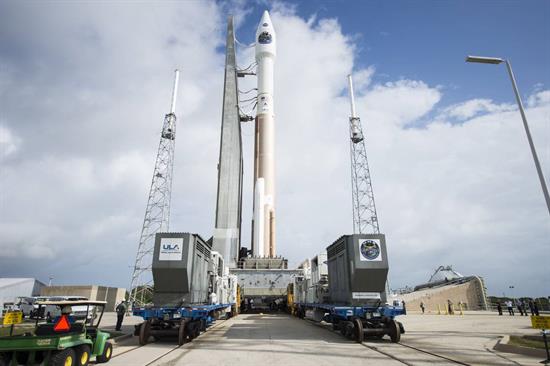Lawmakers Slam NASA for Cutting Deep Space Exploration Spending
Washington,
October 9, 2015
Tags:
NASA/Space
Lawmakers Slam NASA for Cutting Deep Space Exploration Spending
Hearing comes amid heightened interest in Mars exploration stemming from the movie ‘The Martian’ Wall Street Journal | By ANDY PASZTOR | Oct. 9, 2015 | Link Republican leaders of the House Science, Space and Technology Committee blasted National Aeronautics and Space Administration and White House officials Friday for consistently proposing spending reductions to develop rockets and capsules destined for deep-space exploration. Rep. Lamar Smith, the Texas Republican who chairs the full panel, opened a space subcommittee hearing by criticizing the Obama administration for “continuing to try to strangle these programs,” which he added results in budget uncertainties that make it difficult to plan and carry them out effectively. Rep. Brian Babin, the subcommittee chairman and another Texas Republican, said bipartisan House and Senate bills this year have rejected more than $400 million in proposed cuts for the programs. He said NASA managers are “trying to make the best of a poor situation” by coping with year-to-year budget uncertainty. The White House unsuccessfully sought a roughly $440 million cut from the enacted fiscal year 2015 budget of nearly $2.9 billion for rockets and capsules destined for manned deep-space exploration. Dan Dumbacher, a Purdue University professor and a former deputy chief of manned exploration programs for the agency, testified about management and morale problems created by persistent budget battles. Seemingly referring to such fights and related trade-offs between spending on deep-space exploration and funding for commercial cargo and crew programs servicing the international space station, Mr. Dumbacher said progress pursuing a path to Mars remains threatened by “budget uncertainties and policy debates.” The hearing comes amid heightened public interest in Mars exploration stemming from the movie “The Martian” starring actor Matt Damon, which was made with NASA’s cooperation. In his opening statement, Rep. Babin talked about the convergence by noting: “Rarely has popular culture and science aligned in such a serendipitous fashion.” In conjunction with the movie, NASA has conducted an aggressive social media and digital campaign highlighting parallels between the film and the agency’s long-term exploration goals. The hearing comes a day after NASA released its most-detailed technology plan yet to eventually have astronauts land on Mars, perhaps three decades from now. A few weeks ago, NASA officials disclosed a potential two-year slip in the first manned test flight of a heavy-lift rocket and Orion capsule intended to explore parts of the solar system. But Rep. Smith said NASA’s latest report laying out a pathway to Mars amounts to little more than “some pretty photographs and nice words,” because it lacks budget numbers or specific timelines. Without such details, Rep. Smith said, it is “a journey to nowhere.” NASA officials have said that for the past few budget years, Congress has allocated lower overall exploration budgets for NASA than those requested by the White House. Comments by Rep. Dana Rohrabacher, a California Republican, reflected the nagging policy arguments pitting budget levels for commercial transportation programs versus funding for deep-space exploration hardware. Referring to Space Exploration Technologies Corp., a pioneer in low-earth orbit exploration run by billionaire entrepreneur Elon Musk, Rep. Rohrabacher predicted Mr. Musk “will be on Mars before NASA.” |

